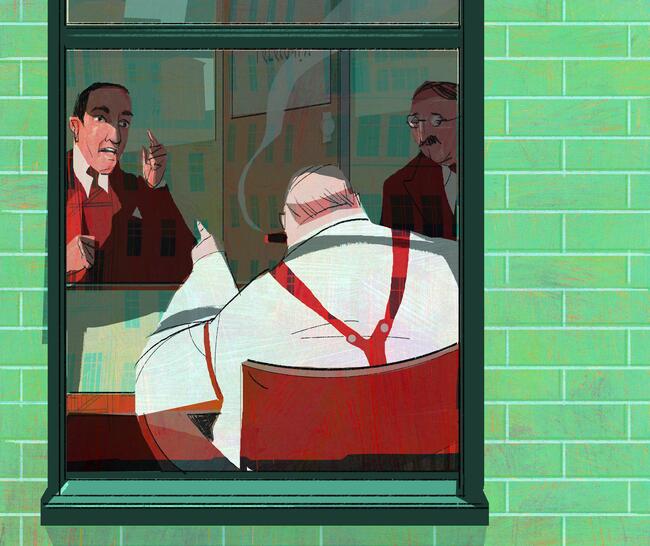
Chapters: An Advocate for Jewish Writers
- Written by:
- Maureen Turner
- Published:
- Fall 2014 / 5775
- Part of issue number:
- 70

The early days of the I. L. Peretz Yiddish Writers’ Union were “not entirely a ‘bed of roses,’” as Hillel Rogoff, a Forverts editor and the union’s first president, told an interviewer from the magazine Labor Age in 1922. Still, while the union had had its fair share of disputes with newspaper management, by the time of that interview, seven years after its founding, the union claimed two hundred members, including the entire writing staffs of New York’s major Yiddish newspapers as well as writers in other U.S. cities. Among the benefits the union had secured for its workers, Rogoff boasted, were a six-hour workday and a minimum wage of $60 a week—“though the great majority receive much more than that.”
But the organization’s mission went beyond collective bargaining. The union—named for one of the three great classical Yiddish writers—also organized lectures and other cultural events and supported an aid fund to “relieve the unfortunate Jewish literati in the countries devastated by war, invasion, and plague,” as Rogoff put it. While that aid work continued into the 1940s, in the years after the War the union’s membership declined steadily. Though it remained active into the 1980s, in its later years the union functioned mainly as a literary society.
